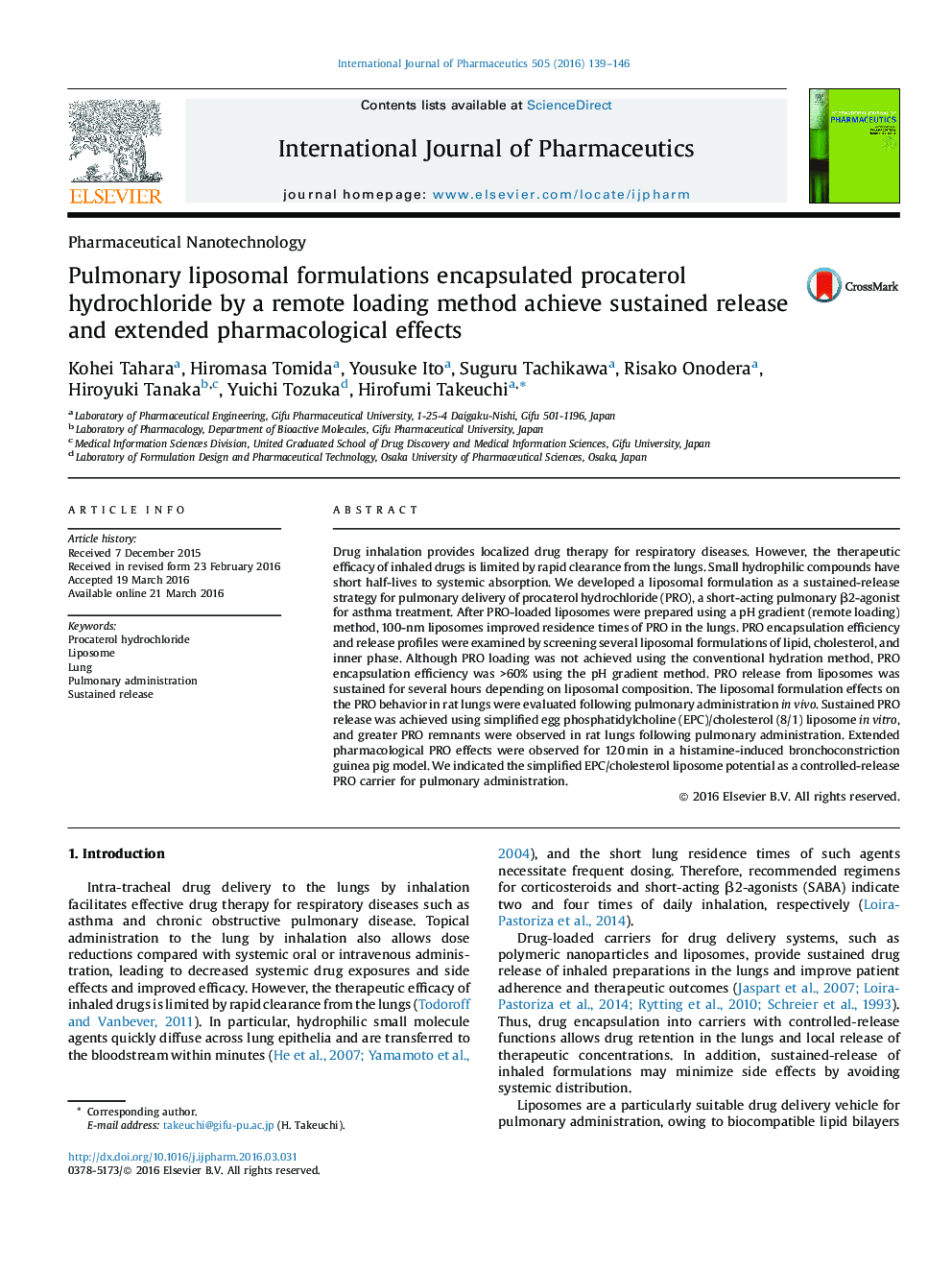| Article ID | Journal | Published Year | Pages | File Type |
|---|---|---|---|---|
| 2500888 | International Journal of Pharmaceutics | 2016 | 8 Pages |
Drug inhalation provides localized drug therapy for respiratory diseases. However, the therapeutic efficacy of inhaled drugs is limited by rapid clearance from the lungs. Small hydrophilic compounds have short half-lives to systemic absorption. We developed a liposomal formulation as a sustained-release strategy for pulmonary delivery of procaterol hydrochloride (PRO), a short-acting pulmonary β2-agonist for asthma treatment. After PRO-loaded liposomes were prepared using a pH gradient (remote loading) method, 100-nm liposomes improved residence times of PRO in the lungs. PRO encapsulation efficiency and release profiles were examined by screening several liposomal formulations of lipid, cholesterol, and inner phase. Although PRO loading was not achieved using the conventional hydration method, PRO encapsulation efficiency was >60% using the pH gradient method. PRO release from liposomes was sustained for several hours depending on liposomal composition. The liposomal formulation effects on the PRO behavior in rat lungs were evaluated following pulmonary administration in vivo. Sustained PRO release was achieved using simplified egg phosphatidylcholine (EPC)/cholesterol (8/1) liposome in vitro, and greater PRO remnants were observed in rat lungs following pulmonary administration. Extended pharmacological PRO effects were observed for 120 min in a histamine-induced bronchoconstriction guinea pig model. We indicated the simplified EPC/cholesterol liposome potential as a controlled-release PRO carrier for pulmonary administration.
Graphical abstractFigure optionsDownload full-size imageDownload high-quality image (215 K)Download as PowerPoint slide
